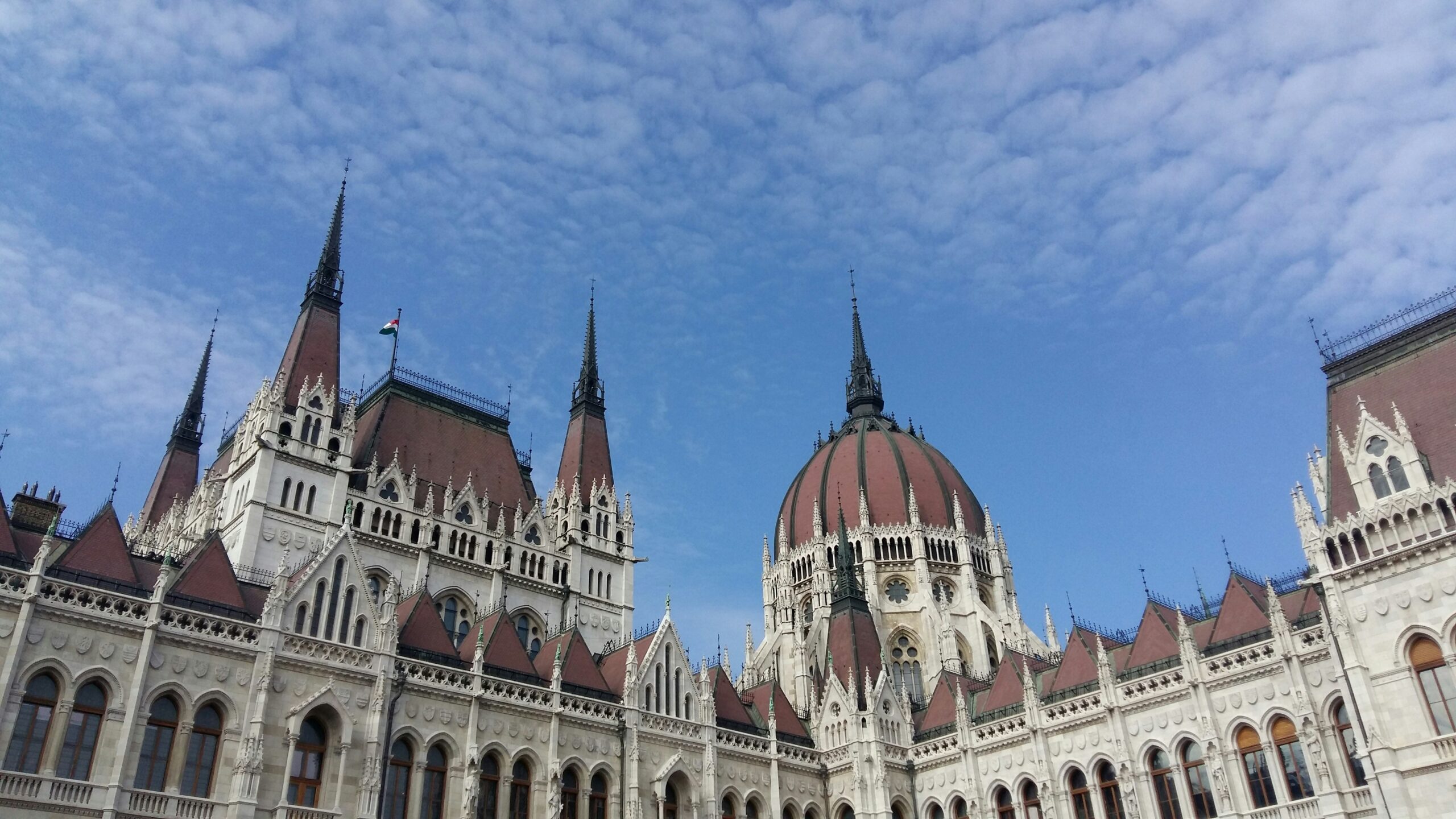
Hungary: Demography is destiny
We’re launching a new series revisiting our Welcome to Gilead campaign, exploring global restrictions on women’s reproductive rights. In this instalment, we revisit the chapter on Hungary’s demography from our 2021 Welcome to Gilead report.
Europe, our common homeland, [is] losing out in the population competition between great civilizations… In the struggle for the future of Europe, stopping illegal migration is imperative…This struggle … is only worthwhile if we are able to combine it with a family policy that restores natural reproduction on the continent.”
Hungarian Prime Minister Viktor Orbán
The Great Replacement Theory
The Hungarian government exemplifies one of the most sinister motivations behind pronatalism: the ‘Great Replacement’ conspiracy theory. In short, the theory accuses shadowy forces of intentionally decimating white Christian populations by encouraging low birth rates and allowing other groups – namely Muslims, migrants, and people of colour – to gain power through immigration and higher birth rates. Those who propagate it frequently blame women for enabling population decline by choosing careers over motherhood.
Hungarian Prime Minister Viktor Orbán openly endorses the Great Replacement theory. He and other far-right Hungarian politicians state that population decline is one of the biggest problems facing Hungary, while at the same time stoking panic about high birth rates among the Roma and refugees, who Orbán calls “Muslim Invaders”. He also incites antisemitism by accusing Jewish Hungarian billionaire George Soros of promoting migration.
Far-right power couple
Unsurprisingly, there are few women in Hungary’s halls of power. But the country does have a real-life Serena Joy, of a kind: politician Dóra Dúró, who has held positions of power in various far-right parties. Dúró has stated that patriotic Hungarians must have at least four children, and she’s no hypocrite: the thirty-four-year-old already has four of her own children.

She opposes legalisation of medical abortion because it would expand the national “disaster” already caused by surgical abortions. Her laptop sticker reminds colleagues that “The nation lives in the womb”. And like Serena, Dúró is one half of a far-right power couple: her husband, politician Előd Novák, is known for his vitriolic attacks on Hungary’s Roma, Jewish, and LGBTQ communities. Unfortunately, Dúró doesn’t seem to recognise that women are another major target for the politics of her husband and party.
Migration is surrender
Hungary’s government has channelled its nationalist agenda into some ostensibly positive pronatalist policies. For example, married couples can apply for a loan of about £25,000, which they don’t have to repay if they have at least three children. And women under 40 are entitled to free fertility treatments. However, a look under the surface reveals that these policies, too, are regressive. Couples who get divorced have just four months to repay their loan, and lesbian women are excluded from government-provided fertility treatments. The government wants people to procreate – but only if they’re Hungarian, heterosexual and married.
Orbán’s pronatalism comes with an expensive price tag: Hungary spends 5% of its GDP on trying to increase the birth rate, which could be better spent on building a safety net for a broader section of society. But Orbán is proud of his ‘investment’: “Instead of just numbers, we want Hungarian children. Migration for us is surrender”.

In 2018, one Hungarian minister declared that its population would be double if abortion had not been legal. And indeed, the government has attempted to force – rather than encourage – women to have more children by restricting and banning abortion. These efforts failed to materialise into legislation, however, because of public backlash. So instead, the government is inching towards an abortion ban with smaller measures. Hungary amended its constitution to specify that the right to life begins at conception. Women now have to attend not one but two counselling sessions, at least three days apart, before they can obtain an abortion. During those sessions, doctors try to dissuade women from terminating their pregnancies, sometimes telling patients that they’re crazy for not pursuing the government’s “generous” loan programme.
A creeping ban
Emergency contraception requires a prescription, and medical abortion is illegal. A government-sponsored propaganda campaign stigmatises any form of abortion. However, many Hungarians still reject the government’s nationalist pronatalism. One young woman, who had to travel to Austria for an abortion, questioned:
why are you forcing women to have babies they don’t want when there are all these refugees who want to come here?… At this rate the only thing Hungarian women are going to be allowed to do is sit in a dark room and keep giving birth to babies they don’t want—while Syrian women desperately try to find homes for the children they do want.”
Orbán has increasingly aimed to export his agenda, and his nationalist pronatalism is inspiring other politicians. In 2019, Hungary hosted an international ‘demography’ conference in which Orbán and other heads of state peddled the Great Replacement theory. That same year, the Hungarian embassy in Washington, D.C., held a conference called “Make Families Great Again”, in which the government encouraged the US to adopt similar pronatalist policies.
Three American Members of Congress spoke at the event. Shannon Kowalski of the International Women’s Health Coalition cautioned that the “conference demonstrates the insidious connections between authoritarian governments, far-right nationalists, and anti-choice movements who conspire to strip women and gender-diverse people of their rights”.
In September 2021, a new iteration of the event, the Budapest Demographic Summit attracted a swathe of international politicians and others for whom demography, family values and national destiny are unambiguously intertwined. The governments of Poland, Slovenia and the Czech Republic joined Hungary in endorsing the associated declaration that:
Increasing the number of European children is essential to preserving Europe’s Christian culture and other religious traditions for future generations.”


